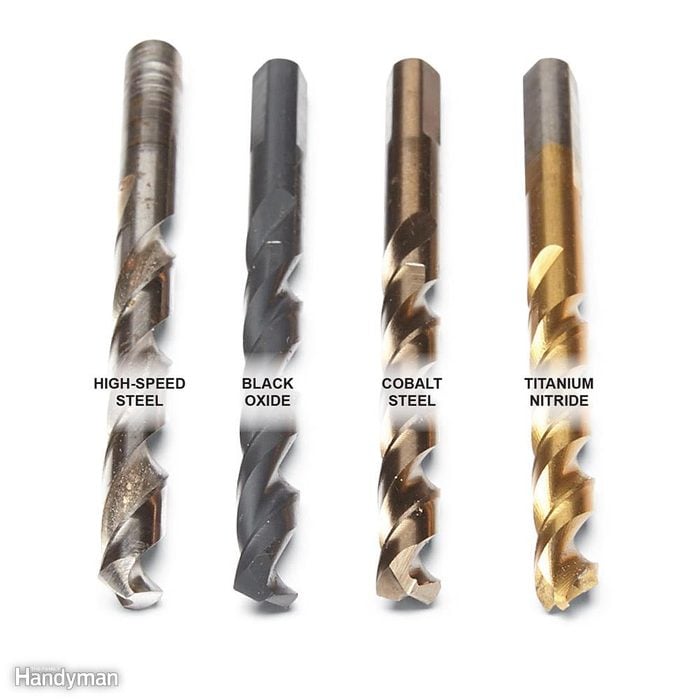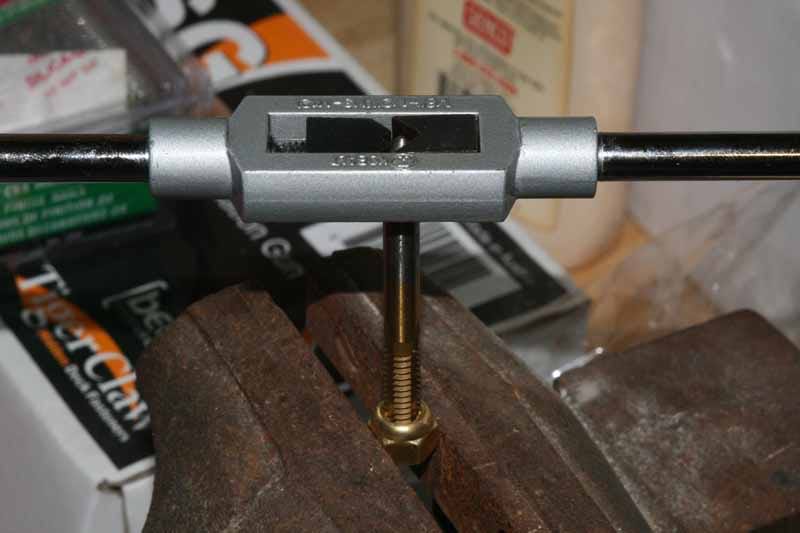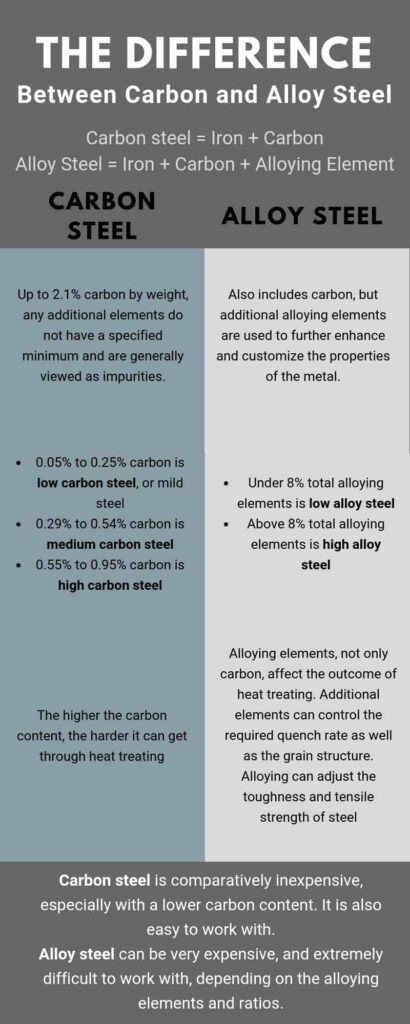Table of Contents
- Sheet Metal Drill Bits: Types and Applications
- Key Takeaways: Sheet Metal Drill Bits: Types and Applications
- Frequently Asked Questions
- What are the different types of sheet metal drill bits?
- What are the applications of sheet metal drill bits?
- How do I choose the right sheet metal drill bit for my project?
- How can I prolong the life of my sheet metal drill bits?
- Can sheet metal drill bits be used on other materials?
- Types of Drill Bits and Their Uses | Wood | Concrete | Metal Drill Bits
- Final Summary: Exploring the World of Sheet Metal Drill Bits
If you’ve ever worked with sheet metal, you know that drilling through it can be quite a challenge. That’s where sheet metal drill bits come in handy. These specialized tools are designed to cut through metal sheets efficiently and effectively. In this article, we’ll explore the different types of sheet metal drill bits available and their applications. So, whether you’re a DIY enthusiast or a professional tradesperson, this guide will equip you with the knowledge you need to choose the right drill bits for your sheet metal projects.
When it comes to drilling through sheet metal, not all drill bits are created equal. The choice of drill bit depends on various factors such as the type of metal, the thickness of the sheet, and the desired hole size. From twist drill bits to step drill bits, each type has its unique features and applications. We’ll delve into the specifics of each type, explaining their advantages and best uses. By the end of this article, you’ll have a comprehensive understanding of sheet metal drill bits and be able to make informed decisions when it comes to tackling your metalworking projects. So, let’s get started and uncover the world of sheet metal drill bits!
Sheet Metal Drill Bits: Types and Applications
Sheet metal drill bits are essential tools for anyone working with sheet metal materials. Whether you’re a professional metalworker or a DIY enthusiast, having the right drill bits for the job is crucial. In this article, we will explore the different types of sheet metal drill bits available and their applications. From understanding the various cutting edges and point angles to knowing when to use a step drill bit or a twist drill bit, we’ve got you covered. So, let’s dive into the world of sheet metal drill bits and discover the best options for your projects.
Twist Drill Bits
Twist drill bits are the most common and versatile type of drill bits used for sheet metal. They have a cylindrical shape with spiral flutes that help to evacuate chips and debris from the hole. Twist drill bits come in various sizes and can be made from different materials, such as high-speed steel (HSS), cobalt, or carbide. HSS drill bits are suitable for most sheet metal applications, while cobalt and carbide drill bits are more durable and can withstand higher temperatures.
One of the key features of twist drill bits is the point angle. The angle of the drill bit’s tip determines its drilling performance and the type of material it can effectively drill. For sheet metal, a point angle between 118 and 135 degrees is commonly used. This angle provides a balance between cutting efficiency and minimizing the risk of the drill bit wandering off the desired path.
Benefits of Twist Drill Bits:
Twist drill bits offer several advantages that make them ideal for sheet metal applications. Firstly, they are readily available and affordable, making them a cost-effective choice. Secondly, their versatility allows for drilling various materials, including sheet metal, plastic, wood, and more. Additionally, twist drill bits can be used with both hand drills and power drills, providing convenience and flexibility.
Types of Twist Drill Bits:
There are different types of twist drill bits designed specifically for sheet metal applications. Here are a few notable ones:
1. Jobber Drill Bits: These are the most common type of twist drill bits. They have a medium length and are suitable for general-purpose drilling in sheet metal.
2. Reduced Shank Drill Bits: As the name suggests, these drill bits have a reduced shank diameter compared to the cutting diameter. They are used when a larger hole is required in thicker sheet metal.
3. Step Drill Bits: Step drill bits have a conical shape with multiple stepped levels. They are ideal for drilling different-sized holes in sheet metal without the need for changing drill bits.
4. Countersink Drill Bits: Countersink drill bits are designed to create a recessed conical hole that allows the screw head to sit flush with the surface of the sheet metal.
Now that we’ve covered twist drill bits, let’s explore other types of drill bits that are commonly used for specific sheet metal applications.
Step Drill Bits
Step drill bits, also known as cone drill bits or unibits, are specially designed for drilling holes of different sizes in sheet metal. They have a conical shape with multiple stepped levels, allowing for gradual hole enlargement without the need for changing drill bits. Step drill bits are commonly used in electrical, HVAC, and automotive applications, where precision drilling in thin sheet metal is required.
The unique design of step drill bits allows for clean and accurate holes without the risk of the bit grabbing or tearing the sheet metal. They also eliminate the need for pilot holes, saving time and effort. Step drill bits are typically made from high-speed steel (HSS) or cobalt, ensuring durability and longevity.
Benefits of Step Drill Bits:
Step drill bits offer several advantages that make them a popular choice for sheet metal applications. Firstly, their ability to drill multiple hole sizes with a single bit saves time and reduces the need for multiple drill bits. Secondly, step drill bits provide smooth and clean holes, minimizing the risk of burrs or jagged edges. Lastly, their self-starting tip eliminates the need for pilot holes, making the drilling process more efficient.
Applications of Step Drill Bits:
Step drill bits are commonly used in various sheet metal applications, including:
1. Electrical Boxes: Step drill bits are ideal for creating precise holes for electrical outlets and switches in sheet metal electrical boxes.
2. HVAC Systems: Step drill bits are frequently used in HVAC installations for drilling holes in ductwork and metal components.
3. Automotive Repairs: Step drill bits are useful for drilling holes in automotive panels, frames, and bodywork during repair and modification projects.
4. Metal Fabrication: Step drill bits are essential tools in metal fabrication, allowing for precise hole drilling in sheet metal for various components and structures.
Now that we’ve explored step drill bits, let’s move on to another type of drill bit commonly used in sheet metal applications.
Countersink Drill Bits
Countersink drill bits are specifically designed to create a recessed conical hole that allows the screw head to sit flush with the surface of the sheet metal. These drill bits have a tapered shape with a cutting edge that bevels the rim of the hole, creating the countersink effect. Countersink drill bits are commonly used in woodworking and metalworking applications, where a clean and professional finish is desired.
Countersink drill bits are available in various sizes and angles to accommodate different screw sizes and materials. They are typically made from high-speed steel (HSS) or carbide for durability and longevity. Countersink drill bits can be used with hand drills, drill presses, or power screwdrivers, providing versatility in different applications.
Benefits of Countersink Drill Bits:
Countersink drill bits offer several benefits that make them a valuable tool for sheet metal applications. Firstly, they create a recessed hole that allows screws to sit flush with the surface, providing a clean and professional finish. Secondly, countersink drill bits help prevent splitting or cracking of the sheet metal when fastening screws. Lastly, they can be used with different screw sizes, accommodating various project requirements.
Applications of Countersink Drill Bits:
Countersink drill bits find various applications in sheet metal projects, including:
1. Metal Fabrication: Countersink drill bits are used to create countersunk holes for fastening screws in sheet metal components and structures.
2. Furniture and Cabinet Making: Countersink drill bits are essential tools in woodworking applications, allowing for the countersinking of screws in furniture and cabinet assembly.
3. Metalworking: Countersink drill bits are commonly used in metalworking projects, such as creating chamfered holes for decorative or functional purposes.
In summary, sheet metal drill bits come in various types and sizes, each designed for specific applications. Twist drill bits are versatile and commonly used for general sheet metal drilling, while step drill bits and countersink drill bits cater to specific needs. Understanding the different types and their applications will help you choose the right drill bits for your sheet metal projects. So, equip yourself with the appropriate drill bits and get ready to tackle your next sheet metal endeavor with confidence.
Key Takeaways: Sheet Metal Drill Bits: Types and Applications
- Sheet metal drill bits are specifically designed for drilling holes in thin metal sheets.
- There are two main types of sheet metal drill bits: twist drill bits and step drill bits.
- Twist drill bits are used for drilling small to medium-sized holes, while step drill bits are ideal for drilling larger holes.
- Sheet metal drill bits have a pointed tip and sharp cutting edges to penetrate the metal surface smoothly.
- These drill bits can be used for various applications, including HVAC installations, automotive repairs, and metal fabrication projects.
Frequently Asked Questions
What are the different types of sheet metal drill bits?
Sheet metal drill bits come in various types, each designed for specific applications. The most common types include:
1. Twist Drill Bits: These are versatile and can be used on a wide range of materials, including sheet metal. They have a pointed tip and spiral flutes that help in cutting through the metal.
2. Step Drill Bits: These bits have multiple stepped diameters, allowing you to drill holes of different sizes without having to change bits. They are ideal for thin sheet metals.
3. Countersink Drill Bits: These bits are used to create a countersink, which allows screws to sit flush with the surface of the sheet metal. They have a conical shape with flutes that help in removing material.
What are the applications of sheet metal drill bits?
Sheet metal drill bits are widely used in various applications, including:
1. HVAC Systems: Sheet metal drill bits are essential for drilling holes in ductwork and other components of HVAC systems.
2. Automotive Industry: These bits are used for drilling holes in automotive body panels, frames, and other sheet metal components.
3. Construction: Sheet metal drill bits are used in construction projects for drilling holes in metal sheets used in roofing, siding, and other applications.
4. Metal Fabrication: Whether it’s for creating metal artwork or fabricating complex metal structures, sheet metal drill bits are indispensable tools in metal fabrication.
How do I choose the right sheet metal drill bit for my project?
Choosing the right sheet metal drill bit depends on several factors, including:
1. Material: Consider the type of sheet metal you will be drilling. Different materials require different drill bits, as some may be too soft or too hard for certain bits.
2. Size: Determine the size of the hole you need to drill. This will help you select a drill bit with the appropriate diameter.
3. Application: Consider the specific application and the requirements of your project. For example, if you need to countersink screws, you will need a countersink drill bit.
How can I prolong the life of my sheet metal drill bits?
To prolong the life of your sheet metal drill bits, follow these tips:
1. Use lubrication: Apply a lubricant, such as cutting oil or lubricating wax, to reduce friction and heat during drilling.
2. Use the correct speed: Adjust the speed of your drill to match the type of material you are drilling. Too high of a speed can cause excessive heat and wear on the drill bit.
3. Avoid excessive pressure: Let the drill bit do the work. Applying too much pressure can lead to overheating and premature wear.
Can sheet metal drill bits be used on other materials?
Yes, sheet metal drill bits can be used on other materials besides sheet metal. However, it’s important to note that they may not perform as effectively as specialized drill bits designed for those materials.
For example, while sheet metal drill bits can drill through plastic or wood, they may not produce clean and precise holes like drill bits specifically made for those materials. It’s always best to use the appropriate drill bit for the specific material you are working with to achieve the best results.
Types of Drill Bits and Their Uses | Wood | Concrete | Metal Drill Bits
Final Summary: Exploring the World of Sheet Metal Drill Bits
When it comes to sheet metal projects, having the right drill bit can make all the difference. Throughout this article, we’ve delved into the various types and applications of sheet metal drill bits, equipping you with the knowledge you need to tackle your next project with confidence.
From twist drill bits to step drill bits, each type serves a specific purpose and offers unique benefits. Whether you’re drilling through thin or thick sheet metal, there’s a drill bit designed to meet your needs. It’s important to consider factors such as material compatibility, cutting speed, and hole size requirements when selecting the appropriate drill bit for your project.
Understanding the applications of each drill bit type allows you to optimize your drilling experience. Whether you’re working on automotive repairs, HVAC installations, or crafting DIY metalwork, choosing the right drill bit ensures accurate and efficient results. So, next time you embark on a sheet metal project, remember to select the appropriate drill bit and let its cutting power guide you towards success.
In conclusion, sheet metal drill bits are essential tools for any metalworking enthusiast or professional. By familiarizing yourself with the different types and applications, you can confidently tackle any sheet metal project and achieve precise and clean holes. So go ahead, grab your drill, and let the sparks fly as you bring your metal creations to life!
Request a quote today!
[contact-form-7 id="1578" title="Contact form"]
Please compress the file into a ZIP or RAR file before uploading. Alternatively, send through your RFQ by email.
enquires@unitymanufacture.com





